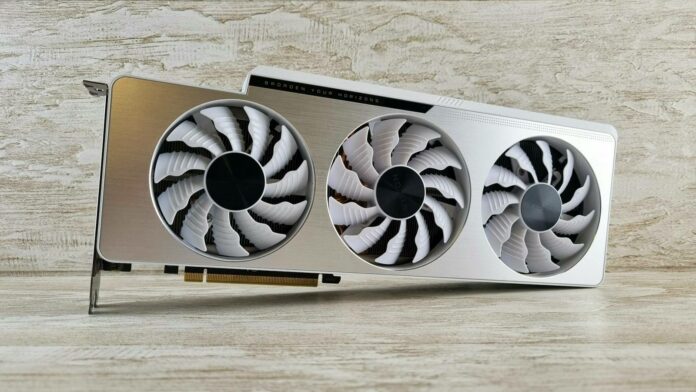Leaker kopite7kimi has revealed potential configurations of upcoming GeForce RTX 5000 series graphics cards. Nvidia seems to have plans for yet another monster to replace the RTX 4090.
According to kopite7kimi, Nvidia will launch at least five different GPU configurations:
- GB202 12×8 512-bit GDDR7
- GB203 7×6 256-bit GDDR7
- GB205 5×5 192-bit GDDR7
- GB206 3×6 128-bit GDDR7
- GB207 2×5 128-bit GDDR6
From the looks of it, the GB202 will be used on the cream of the crop, i.e. the RTX 5090, packing 12 GPC (Graphics Processing Clusters) and 96 TPC (Texture Processor Cluster) alongside GDDR7 VRAM running on a 512-bit wide bus. As a reminder, the last GeForce GPU using a 512-bit bus is the GTX 285, and its GDDR3 memory dates back to 2009. At the rate of 2 SM per TPC, the GB202 should total 192 SM (Streaming Multiprocessors), which is 33% more than the AD102 GPU powering the RTX 4090. In other words, if correct, Nvidia will yet again have a beast on its hands capable of putting to shame even the RTX 4090.
Assuming Nvidia follows the same segmentation used on the RTX 4000 series, GB203 is likely to power RTX 5080 with its 7 GPC plus 42 TPC, for a total of 84 SM – i.e. 5% higher than AD103. In addition to the noticeable change in the GPU size, the memory bus has also been drastically reduced to 256-bit, though it kept the newer GDDR7 chips. If an RTX 5080 retails around £1,000, you can bet its bigger sibling will easily hit £2,000. So, you better start your rice and beans diet already.
Next, we have the GB205 packing 5 GPC and 25 TPC for a total of 50 SM. This time around the SM count sees a 17% reduction compared to its closest sibling, the AD104 GPU. However, this doesn’t make it systematically slower as the architectural improvement may be enough to offset the lower SM count. On the memory side, this one comes hooked to some GDDR7 VRAM via a 192-bit bus, which isn’t bad for the 70-class graphics card this could become.
Covering the low to mid-range, the GB206 houses 3 GPC and 18 TPC, summing up to 36 SM. This is the same count as the AD106, so expect a bit more performance on a potential RTX 5060 Ti. This is also the lowest part featuring GDDR7 memory, linked through a 128-bit bus.
Closing the list, we have the GB207 with its 2 GPC and 10 TPC, resulting in 20 SM, which is 17% lower than its predecessor, the AD107 GPU. For this one, Nvidia is seemingly switching back to GDDR6 on a 128-bit bus, probably to save money on what may become an RTX 5060.
Lastly, keep in mind that, like with its Ada series of GPUs, Nvidia may not provide a fully unlocked chip under its GeForce brand. This may be simply due to yield limitations or to keep the best parts for its server segment. In any case, until an official announcement, all the above remains just a rumour, so take it with the mandatory grain of salt.


